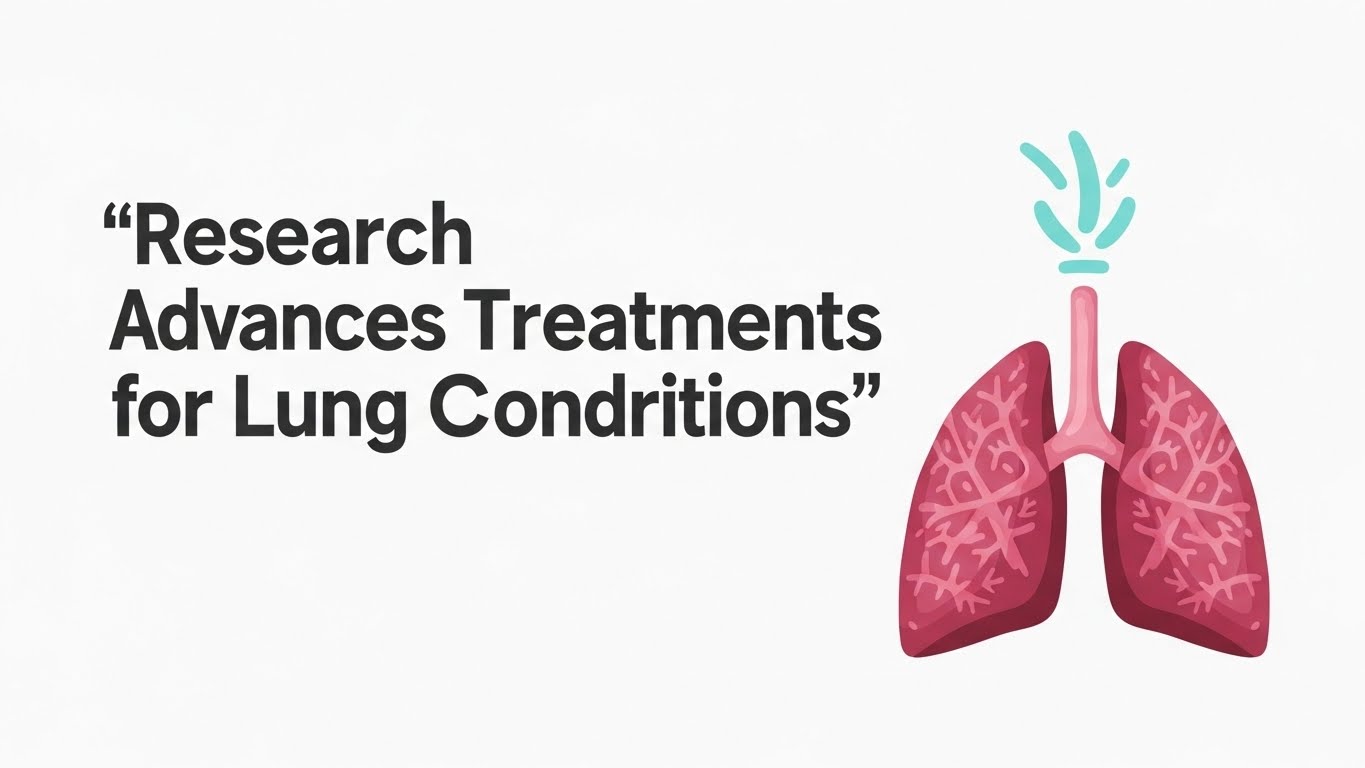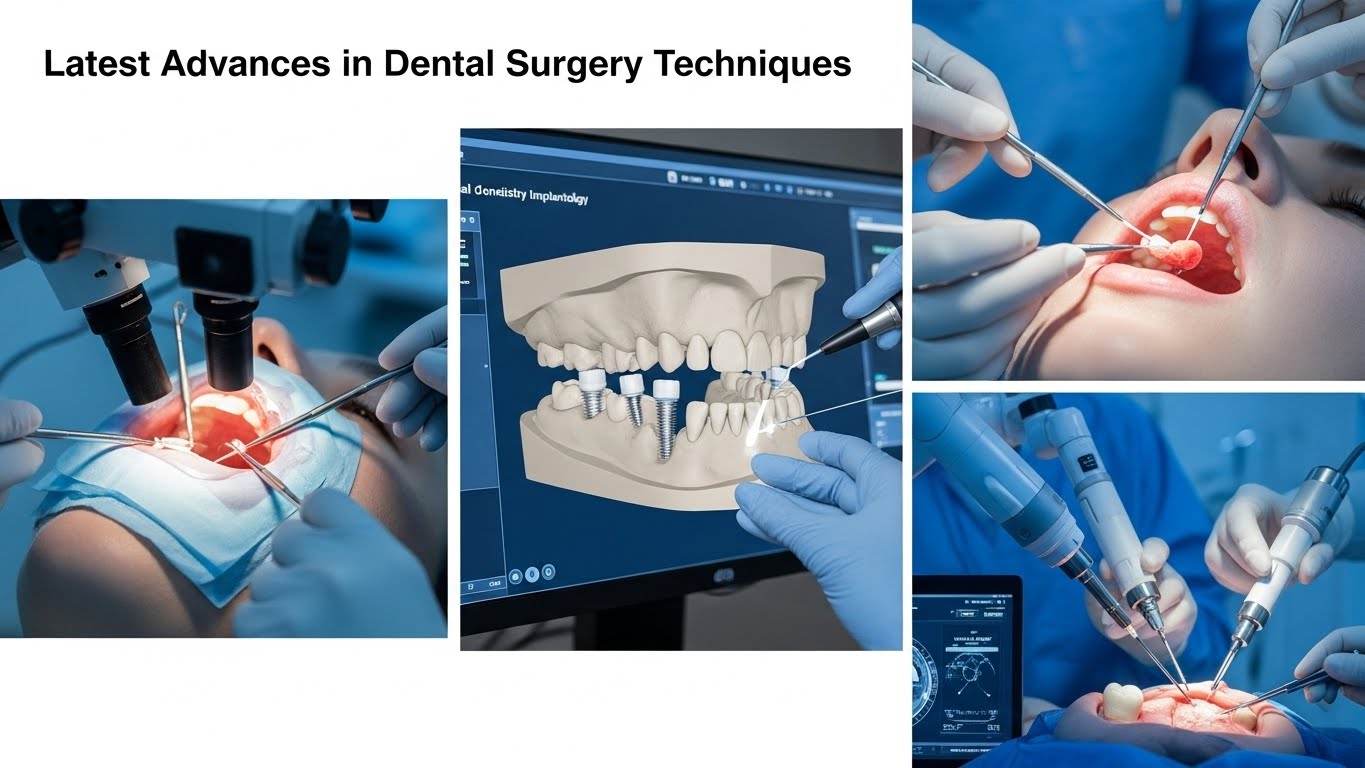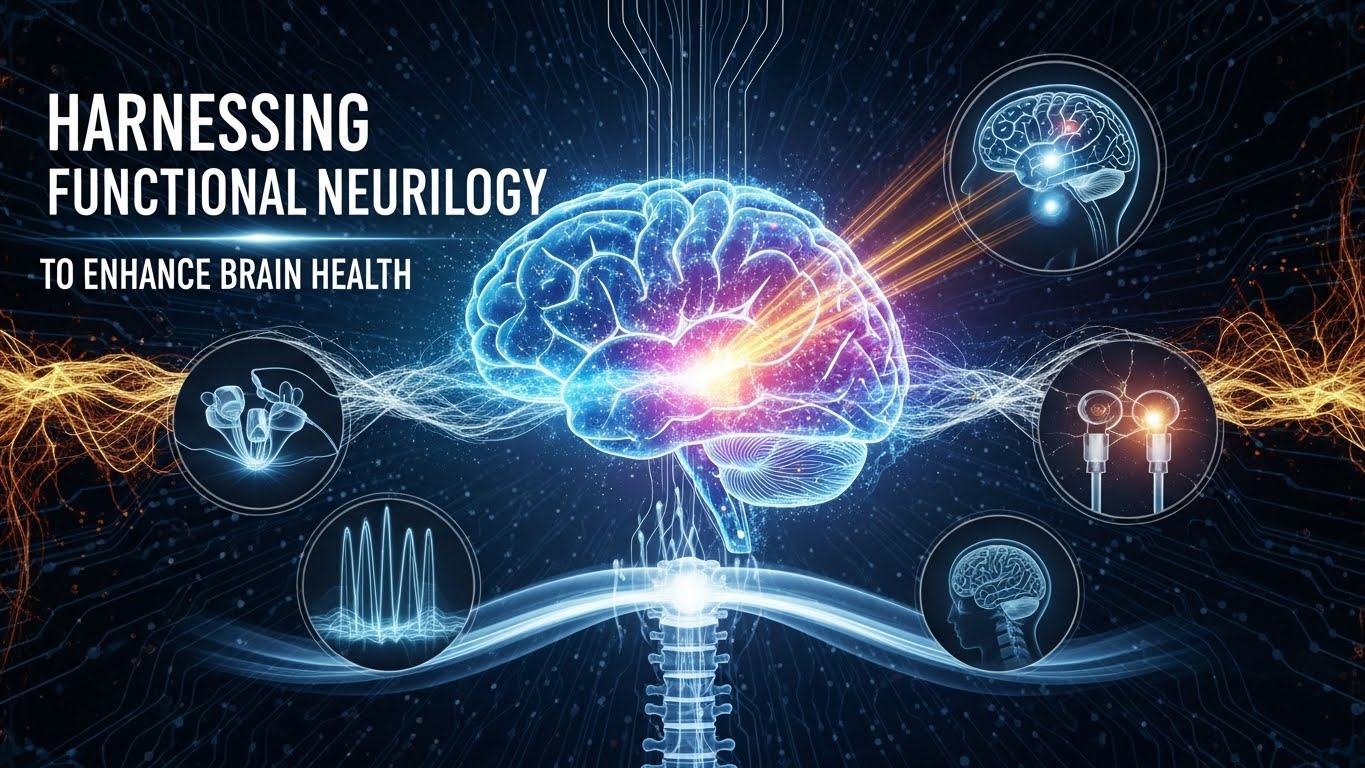HEALTH
Hochschule Physician Assistant: Shaping the Future of Healthcare Leadership

In today’s rapidly evolving healthcare landscape, success is no longer measured solely by the number of patients treated or the size of an institution. The most influential medical professionals are those who combine clinical excellence with a strong sense of social responsibility, shaping systems that improve patient outcomes while strengthening communities. One such emerging model is the hochschule physician assistant program, recognized for aligning advanced training with meaningful impact.
This article explores the hochschule physician assistant path, its approach to integrating academic rigor with real-world healthcare practice, and why it represents the next generation of medical professionals redefining success.
What Is the Hochschule Physician Assistant Program?
The hochschule physician assistant program is designed to train highly skilled healthcare providers who work alongside doctors to deliver comprehensive patient care. These programs combine academic knowledge with clinical rotations, ensuring graduates are prepared to meet the demands of modern medicine.
While physician assistants (PAs) are already essential to healthcare systems in many countries, hochschule-based training adds an extra dimension: an emphasis on leadership, innovation, and community engagement.
A Training Philosophy Rooted in Purpose
At the heart of the hochschule physician assistant model is a commitment to purpose-driven healthcare education. This philosophy emphasizes:
-
Empathy in Practice – Understanding the human side of medicine, from patient relationships to interdisciplinary teamwork.
-
Sustainability in Healthcare – Balancing the needs of a growing patient population with efficient, ethical, and evidence-based care.
-
Collaboration Across Professions – Building partnerships among doctors, nurses, administrators, and community organizations to improve outcomes.
This approach reflects the growing recognition that modern healthcare providers must combine clinical expertise with leadership skills and community awareness.
Bridging Academic Excellence with Community Health
What makes the hochschule physician assistant program especially noteworthy is its ability to merge rigorous academic study with tangible benefits to patients and communities. Key elements of this approach include:
-
Interdisciplinary Learning – Students gain exposure to multiple specialties, from primary care to surgery, ensuring versatility.
-
Community Engagement – Encouraging future physician assistants to participate in public health campaigns, free clinics, and outreach programs.
-
Innovation in Patient Care – Leveraging technology and data-driven tools to improve diagnostics, treatment planning, and patient education.
By embedding these values into its training, the hochschule physician assistant program illustrates how healthcare education can create a virtuous cycle of success—where skilled providers strengthen communities, which in turn support better health outcomes.
Influence of Digital Health in Education
As a rising model in medical education, the hochschule physician assistant pathway recognizes the importance of digital tools and technology in today’s healthcare environment. These programs integrate electronic health records, telemedicine, and data analytics into their training to prepare students for the realities of modern practice.
This digital-savvy approach enables graduates to:
-
Reach Underserved Populations – Using telehealth to deliver care where it’s needed most.
-
Engage Patients More Effectively – Through apps, portals, and online education.
-
Stay Current With Emerging Trends – Quickly adapting to advances in diagnostics, treatment, and public health strategies.
By leveraging technology strategically, the hochschule physician assistant model creates practitioners who are not just clinically competent but also digitally fluent.
A Model for the Next Generation of Healthcare Leaders
The hochschule physician assistant pathway reflects broader shifts in healthcare workforce expectations, particularly among Millennials and Gen Z. These generations increasingly value:
-
Authenticity – A genuine alignment between clinical training and ethical care.
-
Diversity and Inclusion – Commitment to serving diverse patient populations with cultural competence.
-
Global Awareness – Recognition of interconnected health challenges, from pandemics to chronic disease prevention.
By championing these principles, the hochschule physician assistant approach positions its graduates as both clinicians and leaders—mentors who guide others toward a future where healthcare success naturally aligns with community well-being.
Challenges and Opportunities
Like any healthcare training model navigating today’s complex environment, the hochschule physician assistant program faces challenges:
-
Balancing Academic Rigor With Practical Skills – Ensuring students are equally prepared for exams and real-world scenarios.
-
Convincing Traditional Stakeholders of the PA Role – In some systems, physician assistants are still underrecognized compared to doctors.
-
Navigating Rapidly Changing Healthcare Regulations – Staying compliant while maintaining high-quality care.
Yet these challenges also present opportunities for innovation. By adapting quickly and integrating new technologies and teaching methods, the hochschule physician assistant model transforms obstacles into catalysts for growth, ensuring that purpose-driven healthcare remains both aspirational and practical.
How the Hochschule Physician Assistant Program Embraces Innovation
One of the distinguishing elements of the hochschule physician assistant program is its emphasis on innovation as a driver for both healthcare improvement and professional development. This includes:
-
Simulation-Based Learning – Using high-fidelity mannequins and virtual reality to prepare students for complex clinical scenarios.
-
Data-Driven Decision-Making – Training future PAs to interpret lab results, imaging, and health metrics to improve patient outcomes.
-
Interprofessional Education – Encouraging students to work closely with nursing, pharmacy, and public health peers to understand the full continuum of care.
This innovative DNA ensures that graduates remain relevant and resilient in an ever-changing healthcare environment.
Building Community Through the Hochschule Physician Assistant Model
Another critical dimension of the hochschule physician assistant path is its emphasis on community building. Rather than operating in isolation, these programs cultivate networks of partners, hospitals, clinics, and NGOs that share their values. This creates a multiplier effect—expanding the reach of positive change and fostering healthcare ecosystems that are collaborative and effective.
Programs aligned with hochschule physician assistant training often engage in:
-
Mentorship Programs – Pairing students with experienced clinicians.
-
Public Health Partnerships – Addressing social determinants of health at scale.
-
Service Learning – Requiring students to volunteer in underserved areas to gain firsthand experience.
Why the Hochschule Physician Assistant Program Matters Now More Than Ever
As global challenges like workforce shortages, chronic disease, and rapid technological change accelerate, the hochschule physician assistant approach offers a roadmap for sustainable healthcare delivery. By embedding purpose into every level of education and practice, physician assistants can help future-proof health systems while earning trust from patients and stakeholders alike.
In an era where transparency, competence, and empathy are paramount, the hochschule physician assistant model stands out as a reminder that technical excellence and human-centered care are not mutually exclusive—they’re complementary.
Looking Ahead: The Future of the Hochschule Physician Assistant Role
As the hochschule physician assistant model continues to grow in influence, it signals a new paradigm in healthcare leadership—one that values resilience, empathy, and innovation alongside clinical expertise. Graduates of these programs will be better positioned to navigate the complexities of the modern healthcare landscape and set new standards for excellence.
In the coming years, expect the hochschule physician assistant path to:
-
Expand its network of socially conscious medical professionals.
-
Launch initiatives that fuse technology, patient advocacy, and community impact.
-
Inspire a generation of healthcare workers to see their role not just as a job but as a responsibility to drive positive change.
Conclusion
The rise of the Hochschule Physician Assistant program marks more than an educational change; instead, it signals a healthcare transformation. Moreover, this program demonstrates how innovation, purpose, and engagement can merge to shape future-ready medical leaders. Therefore, it represents a vision of medicine where compassion and competence align with social responsibility. Consequently, the approach goes beyond teaching clinical skills and builds a foundation for long-term leadership.
For students, the pathway offers opportunities to grow personally and professionally. Likewise, it empowers aspiring professionals to develop expertise while embracing ethical healthcare values. Furthermore, the curriculum encourages collaboration across disciplines, ensuring that graduates are adaptable and impactful. In addition, institutions benefit because the program strengthens their reputation while serving community needs. Hence, it acts as a bridge between traditional knowledge and evolving healthcare expectations.
Ultimately, the Hochschule Physician Assistant program symbolizes a guiding light for modern healthcare. Not only does it prepare individuals for clinical excellence, but it also cultivates leaders who prioritize equity and sustainability. Additionally, it promotes meaningful connections between communities and practitioners. As a result, the program inspires hope for a future where healthcare is both inclusive and forward-looking.

HEALTH
How Research Advances Treatments for Lung Conditions

Lung conditions, including chronic obstructive pulmonary disease (COPD), lung cancer, and interstitial lung diseases, impact millions of people worldwide and constitute a leading cause of morbidity and mortality. Innovative research continues to drive breakthroughs in both diagnosis and treatment, furthering hope for patients and caregivers alike. The foundation of many new therapies and early detection tools rests on rigorous clinical research, offering patients access to the most advanced care. For those seeking cutting-edge solutions, participating in clinical trials for lung cancer is a vital step, often providing access to innovative treatments before they are widely available.
Research in this field ranges from enigmatic regenerative therapies to molecularly targeted drugs designed to halt the progression of life-limiting diseases. With more in-depth studies into the genetics and mechanisms behind lung pathology, physicians are able to offer more precise and individualized therapies, fundamentally changing the landscape of lung care.
The critical role of research is evident not only in the development of new drugs but also in the integration of advanced diagnostic tools and collaborative global initiatives. With coordinated efforts across major research institutes, clinical networks, and leading pharmaceutical companies, the pace of discovery continues to accelerate.
Personalized Medicine: Tailoring Treatments to Individuals
The era of personalized medicine has significantly transformed the treatment of lung diseases. By leveraging insights from patients’ genetic and molecular profiles, clinicians can select therapies tailored specifically to each individual. This approach has revolutionized the treatment of certain lung cancers; for instance, tumors can be analyzed for genetic mutations that predict a response to immunotherapy, ensuring patients receive the best possible treatment from the outset.
Immunotherapies, such as immune checkpoint inhibitors, have emerged as powerful options for subsets of lung cancer patients, thanks to research that identifies specific biomarkers in lung tissue that predict successful outcomes. This targeted approach minimizes unnecessary side effects and maximizes the benefits of treatment.
Recent studies have revealed the remarkable regenerative potential of lung tissue, opening the door to innovative therapies for chronic lung diseases that were once considered irreversible. Scientists have discovered molecular “switches” within lung cells that determine whether they prioritize repair or immune defense. By manipulating these switches, researchers aim to enhance natural healing in the lungs, potentially reversing or halting the progression of conditions such as idiopathic pulmonary fibrosis and severe COPD.
Preclinical findings suggest that enhancing these innate repair mechanisms may restore lung tissue health and enhance overall function. Such treatments, while still in their infancy, represent the next frontier for chronic lung disease therapy and provide renewed optimism for patients and providers alike.
Innovative Diagnostic Tools: Early Detection and Monitoring
Success in treating lung disease begins with an early and accurate diagnosis. Non-invasive tools, such as the innovative “E-nose” technology, are revolutionizing the detection of lung cancer. By assessing breath samples for volatile organic compounds, the E-nose can potentially identify cancerous activity before it appears on imaging scans, making screening safer and more accessible.
In addition to early detection, ongoing monitoring is crucial for managing those with chronic lung conditions. Advances in wearable technology and remote monitoring platforms enable clinicians to track lung function, oxygen levels, and symptom progression in real-time, thereby improving responsiveness and patient outcomes.
Collaborative Research Efforts: Accelerating Discoveries
No single institution or scientist can tackle the full complexity of lung diseases independently. Collaborative research efforts—between universities, hospitals, governmental organizations, and private foundations—are integral to accelerating the discovery of new findings. Initiatives like the American Lung Association’s Catalyst Research Award are supporting a next generation of investigators, accelerating the pace of progress in lung health through shared knowledge and diverse perspectives.
These collaborations also ensure greater participation in clinical trials and richer patient data, which leads to more representative results and ultimately more effective therapies entering clinical practice.
Advancements in COPD Management
Chronic obstructive pulmonary disease remains one of the world’s most challenging lung conditions, but significant progress has been made. Modern biologic therapies now target specific inflammatory pathways within the airways, reducing flare-ups and slowing disease progression for those with certain inflammatory profiles. Inhalers that combine multiple medications in a single device, along with minimally invasive bronchoscopic procedures, are improving symptom control and quality of life.
Researchers continue to refine and personalize COPD treatment, ensuring that each therapy is matched to the patient’s underlying biology, lifestyle, and preferences. Evidence-based guidelines are regularly updated as new data emerge, reflecting a commitment to delivering patient-centered care.
Future Directions: Precision Medicine and Beyond
As research continues to unravel the genetic and molecular secrets of lung diseases, precision medicine is poised to gain even greater prominence. Upcoming studies are focused on discovering novel biomarkers for earlier detection, developing new anti-inflammatory agents, and optimizing lung imaging technologies. The focus is clear—deliver the right treatment to the right patient at the right time, and with the least possible side effects.
Relentless scientific discovery and productive partnerships will continue to drive advances in the understanding, diagnosis, and treatment of all types of lung conditions. As a result, the outlook for individuals facing lung disease has never been more promising.
Conclusion
Ongoing innovation in lung disease research is transforming how conditions are detected, treated, and managed, offering patients more precise and effective care than ever before. As personalized medicine, advanced diagnostics, and collaborative research continue to evolve, these breakthroughs hold the promise of improving outcomes, extending quality of life, and reshaping the future of lung health worldwide.
HEALTH
Latest Advances in Dental Surgery Techniques

Dental surgery is undergoing a technological transformation, with new advancements significantly improving the quality, efficiency, and predictability of patient care. Today’s dental specialists are equipped with state-of-the-art options that minimize discomfort and maximize overall results, setting unprecedented standards for dental health outcomes. Practices such as those at the Pikos Institute are among the leaders, implementing innovative techniques that reflect the latest scientific breakthroughs to deliver outstanding outcomes and patient satisfaction.
Emerging tools—including refined laser systems, artificial intelligence (AI), and robotics—are refocusing the field on minimally invasive treatments, safer surgeries, and faster recoveries. These developments are a direct response to growing patient demands for comfort, precision, and longevity, resulting in both improved clinical outcomes and enhanced patient experiences. Alongside high-tech hardware, sophisticated digital workflows and regenerative medicine are revolutionizing how dental surgeons approach complicated cases, enabling interventions that were previously considered impossible or too risky.
With these advancements, dental professionals are empowered to address a broader spectrum of oral health challenges—from periodontal disease and jawbone atrophy to extensive tooth loss—with greater confidence and success. As a result, patients now have access to solutions that are gentler, faster, and more effective than ever before.
For patients and clinicians alike, staying informed about these innovations ensures better communication, clearer expectations, and more predictable treatment plans. As the dental landscape continues to evolve, the implications for patient care are dramatic, promising better long-term outcomes for those in need of surgical intervention.
Laser Technology in Dental Surgery
Lasers are now widely used in periodontics, oral surgery, and restorative dentistry due to their ability to achieve precision and preserve tissue. Techniques such as the Laser-Assisted New Attachment Procedure (LANAP) allow clinicians to selectively remove disease while sparing as much healthy tissue as possible. This results in less swelling and bleeding, smoother procedures, and faster patient recovery. Modern dental lasers complement digital workflows and CAD/CAM technologies, integrating with scans and models to plan and execute highly accurate treatments. Laser dentistry is now supported by robust clinical evidence for applications from soft tissue surgery to complex tissue modifications, making it a cornerstone technology of modern dental practice.
Artificial Intelligence and Robotics
AI-driven diagnostics are rapidly becoming a vital asset in dental surgery, analyzing detailed imaging, patient histories, and live data to suggest personalized treatments and forecast outcomes. Robotics enhances these functions by providing mechanical help during precise procedures like implant insertions. For instance, dental robots can precisely determine the ideal angulation, depth, and placement for implants using AI-generated plans, which helps reduce mistakes and makes the workflow more efficient. This leads to fewer complications and more consistent healing results. The launch of a robotic system marks a major milestone, demonstrating how intelligent automation can transform dental surgery for both practitioners and patients.
3D Imaging and Virtual Surgical Planning
3D imaging modalities, such as Cone Beam Computed Tomography (CBCT), deliver highly detailed visualizations of patient anatomy. These images can be rendered in virtual surgery planning software, allowing clinicians to simulate entire procedures preoperatively. Surgeons can now anticipate anatomical challenges and digitally model each step, selecting optimal surgical routes that reduce procedure time and risk. Virtual Surgical Planning (VSP) not only streamlines communication between dental teams but also reduces chair time, eliminates intraoperative guesswork, and often improves patient recovery. The transformative impact of these tools is continually demonstrated in both routine and complex cases.
Bone Regeneration Techniques
Many patients require bone augmentation before receiving dental implants, particularly when years of tooth loss or infection have led to resorption. New bioengineering techniques and bone substitute materials, including synthetic grafts, bioactive ceramics, and allografts, have significantly improved the field. Platelet-Rich Plasma (PRP) and Platelet-Rich Fibrin (PRF), obtained directly from the patient’s own blood, further accelerate healing and stimulate bone growth, thereby increasing the chances of successful implantation. These breakthroughs offer life-changing solutions to patients previously considered ineligible for reconstructive surgery, allowing functional and aesthetic rehabilitation that stands the test of time.
Conclusion
Dental surgery is undergoing a paradigm shift, fueled by advances in laser therapeutics, artificial intelligence, digital planning, and regenerative medicine. These innovations emphasize safety, efficiency, and overall patient wellness, transforming nearly every aspect of care. By adopting these new technologies and methodologies—and seeking specialists and centers dedicated to integrating them into practice—patients and professionals are ensuring the future of dentistry is brighter, more precise, and more comfortable than ever before.
HEALTH
Harnessing Functional Neurology to Enhance Brain Health

In today’s fast-paced world, maintaining optimal brain health is paramount. Functional neurology, a non-invasive and holistic approach, offers promising methods to enhance cognitive function and emotional well-being. By focusing on the intricate relationship between the brain and the nervous system, functional neurology provides personalized strategies to improve overall health.
For individuals recovering from brain injuries, specialized centers like The Hartman Center For Functional Neurology offer comprehensive concussion treatment. Located in Midland Park, NJ, The Hartman Center specializes in functional neurology and cognitive brain training, providing evidence-based therapies to support recovery and enhance brain function.
Understanding Functional Neurology
Functional neurology is a healthcare paradigm that utilizes the clinical applications of neuroscience to assess and treat neurological disorders without relying on pharmaceuticals or surgery. It highlights the brain’s ability to adapt and reorganize itself, a phenomenon known as neuroplasticity, which enables it to restore function and enhance health.
Practitioners of functional neurology employ a variety of techniques, including neurofeedback, vestibular rehabilitation, and targeted exercises, to address conditions such as migraines, vertigo, and cognitive impairments. By identifying and treating the root causes of neurological dysfunction, functional neurology aims to enhance the body’s natural healing processes.
Neuroplasticity and Brain Health
Neuroplasticity refers to the brain’s ability to reorganize itself by forming new neural connections throughout life. This adaptability is crucial for learning, memory, and recovery from brain injuries. Functional neurology utilizes neuroplasticity to design interventions that target specific brain regions, thereby promoting healing and enhanced function.
Engaging in activities that challenge the brain, such as learning new skills or practicing mindfulness, can enhance neuroplasticity. These practices not only improve cognitive abilities but also contribute to emotional regulation and overall mental health.
 Techniques in Functional Neurology
Techniques in Functional Neurology
Functional neurology employs a range of techniques tailored to individual needs. Some of the most effective methods include:
Neurofeedback
Neurofeedback is a form of biofeedback that utilizes real-time monitoring of brain activity to teach individuals self-regulation of their brain function. By providing immediate feedback, individuals can learn to modify brainwave patterns, leading to improvements in attention, anxiety, and mood disorders.
Vestibular Rehabilitation
This therapy focuses on the vestibular system, which controls balance and spatial orientation. Through specific exercises, vestibular rehabilitation aims to alleviate dizziness, vertigo, and balance issues by retraining the brain to process sensory information more effectively.
Targeted Exercises
Customized physical and cognitive exercises are designed to stimulate specific areas of the brain. These exercises can improve motor skills, coordination, and cognitive functions, contributing to overall brain health.
Benefits of Functional Neurology
Integrating functional neurology into healthcare presents several significant advantages. Firstly, it offers non-invasive treatment options, which provide alternatives to traditional medication and surgery, thereby minimizing the risks of side effects and complications. Secondly, functional neurology emphasizes personalized care, tailoring treatments to each individual’s unique neurological profile, ensuring that interventions are targeted and effective. Additionally, techniques such as neurofeedback and cognitive exercises have been shown to enhance cognitive function, improving areas such as memory, attention, and executive function. Lastly, functional neurology contributes to improved emotional well-being by addressing underlying neurological issues, potentially alleviating symptoms of anxiety, depression, and stress.
Incorporating Functional Neurology into Daily Life
Adopting principles of functional neurology can be effectively integrated into everyday life to promote sustained brain health. Key practical steps include engaging in regular physical activity, such as yoga, tai chi, and aerobic exercises, which are known to stimulate brain function and enhance neuroplasticity. Mindfulness and meditation practices are also crucial, as they enhance emotional regulation and reduce stress, thereby further supporting overall brain health. Additionally, maintaining a balanced diet rich in nutrients, including omega-3 fatty acids, antioxidants, and vitamins, is essential for enhancing cognitive capabilities. Lastly, prioritizing sleep is vital, as quality sleep supports cognitive processes and emotional well-being; establishing a regular sleep schedule can significantly improve brain function.
Conclusion
Functional neurology offers a holistic and non-invasive approach to enhancing brain health. By leveraging the brain’s natural ability to adapt and reorganize, individuals can improve cognitive function, emotional well-being, and overall quality of life. Integrating functional neurology techniques into daily routines empowers individuals to take proactive steps toward optimal brain health.
-

 TOPIC4 months ago
TOPIC4 months agov4holt: Revolutionizing Digital Accessibility
-

 TOPIC6 months ago
TOPIC6 months agoMolex 39850-0500: An In-Depth Overview of a Key Connector Component
-

 TOPIC4 months ago
TOPIC4 months agoMamuka Chinnavadu: An Exploration of Its Significance and Cultural Impact
-

 TOPIC5 months ago
TOPIC5 months agoGessolini: Minimalist Aesthetic Rooted in Texture
-

 blog5 months ago
blog5 months agoBlack Sea Body Oil: A New Standard in Natural Skincare
-

 TOPIC6 months ago
TOPIC6 months agoManguonmienphi: Understanding the Concept and Its Impact
-

 TOPIC6 months ago
TOPIC6 months agoDorothy Miles: Deaf Poet Who Shaped Sign Language
-

 TOPIC6 months ago
TOPIC6 months agoArnav Deepaware: A Rising Computer Scientist and Innovator